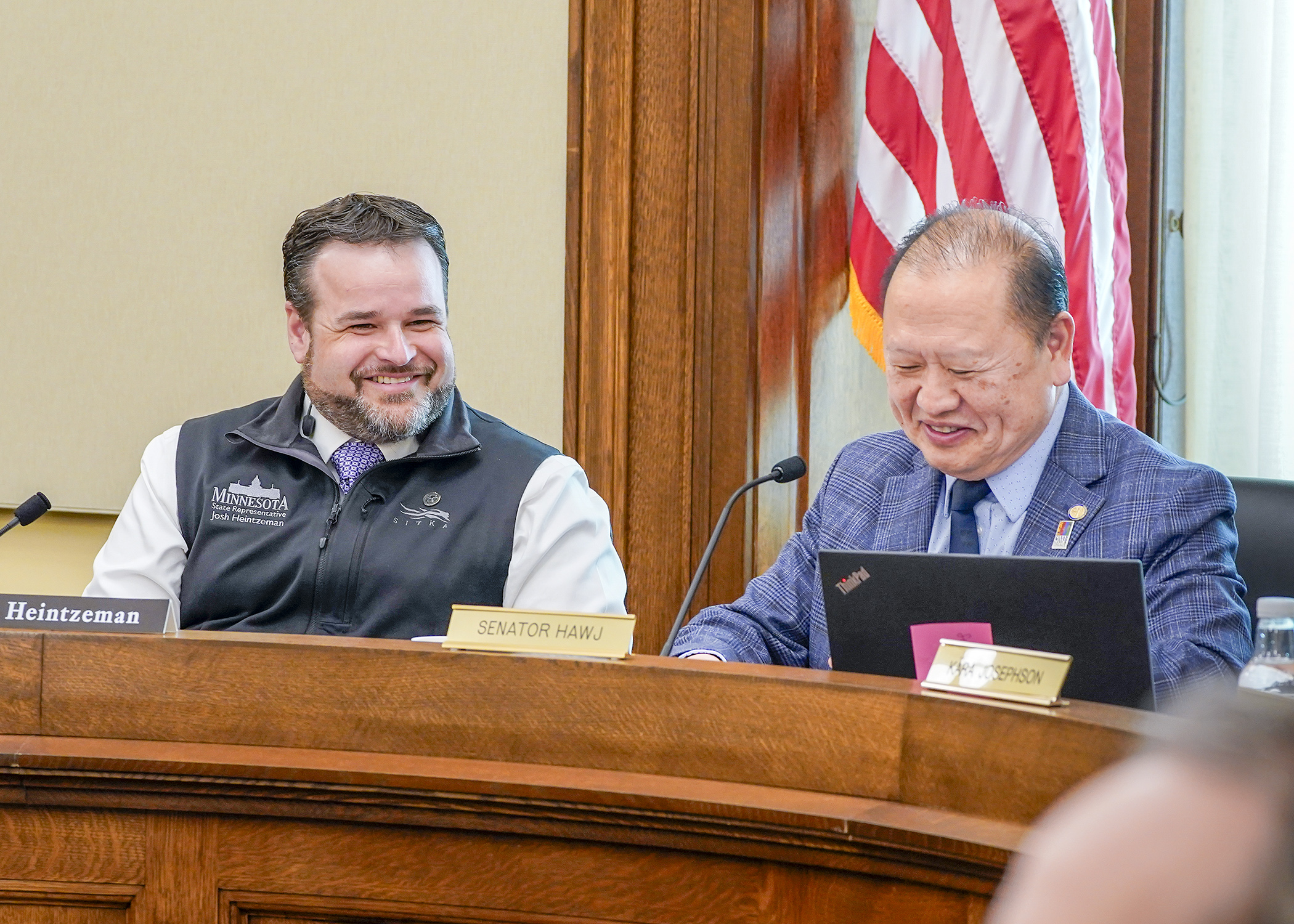Environment, natural resources conference committee begins work

Predicting the future is a fool’s errand and Sen. Foung Hawj (DFL-St. Paul) showed he is no fool when he declined to predict the future course of HF2439/SF2077*, the omnibus environment and natural resources budget and policy bill he sponsors.
Before adjourning the first meeting of the environment conference committee Friday, Co-chair Hawj was wisely vague about the future.
“It could be a short negotiation, or it could be a long negotiation,” he said.
However, he did express hope the differences could be resolved before the end of session.
For his part, Co-chair Rep. Josh Heintzeman (R-Nisswa) was equally vague.
“This was a first step to get us toward completing our work and glad we could meet today and get that accomplished,” he said.
No future meetings are scheduled.
Day 1 accomplishments
As explained during walkthroughs of the fiscal comparisons and side-by-side comparisons, each body brought a version of the omnibus bill to the conference committee based on different budget targets from their respective leadership.
The Senate constructed a budget with a target of reducing General Fund spending by $1 million in the 2026-27 biennium. The House was charged with cutting $10 million.
The House met its target by cutting:
- $5 million from a 2024 appropriation to the DNR for enhancing prairies and grasslands and restoring wetlands on state-owned wildlife management areas;
- $3 million from a 2025 Pollution Control Agency appropriation for a local government climate resiliency and water infrastructure grant program; and
- $2 million from a 2025 appropriation to the Board of Water and Soil Resources for conservation easements and restoration and enhancement for purposes of climate resiliency, adaptation, and carbon sequestration.
The Senate cuts are more spread out, but one major financial difference between the bills is that the House would not appropriate any money from the General Fund to increase the operating budgets of the departments and agencies funded by the omnibus bill. The Senate version fully funds operating adjustment increases at the levels recommended by the governor of the Department of Natural Resources, Pollution Control Agency, Minnesota Zoo and the Board of Soil and Water Resources.
Still, even with those different starting points, the proposed House and Senate total new General Fund spending in 2026-27 are only $9 million apart, with the Senate at $434.9 million and the House at $425.9 million.
The policy picture
The policy picture is much different, however, with Heintzeman commenting on the House bill when it passed that body May 5 that it contained no major policy provisions due to a lack of agreement between him and Rep. Peter Fischer (DFL-Maplewood). The duo co-chair the House Environment and Natural Resources Finance and Policy Committee.
A policy comparison sheet made that evident, with 17 of 21 entries labeled as “Senate-only” provisions.
While the fiscal differences between the House and Senate positions are not trivial, it’s clear the bulk of the negotiations going forward will focus on policy issues.
A major policy issue left unresolved is Pollution Control Agency permitting procedures. Republicans want reforms to speed up the process and make environmental reviews more efficient. Democrats say that cannot be done without jeopardizing air, water and soil quality.
Some of the notable Senate-only provisions include:
- a watercraft surcharge increase;
- a water appropriation permit fee application increase;
- penalties for abandoning watercraft;
- water use permit fee increases;
- outdoor schools for all grant program; and
- reduced license fees (game and fish, deer and small game, angling) for disabled veterans.
Related Articles
Search Session Daily
Advanced Search OptionsPriority Dailies
Legislative leaders set 2026 committee deadlines
By Lisa Kaczke Legislative leaders on Tuesday officially set the timeline for getting bills through the committee process during the upcoming 2026 session.
Here are the three deadlines for...
Legislative leaders on Tuesday officially set the timeline for getting bills through the committee process during the upcoming 2026 session.
Here are the three deadlines for...